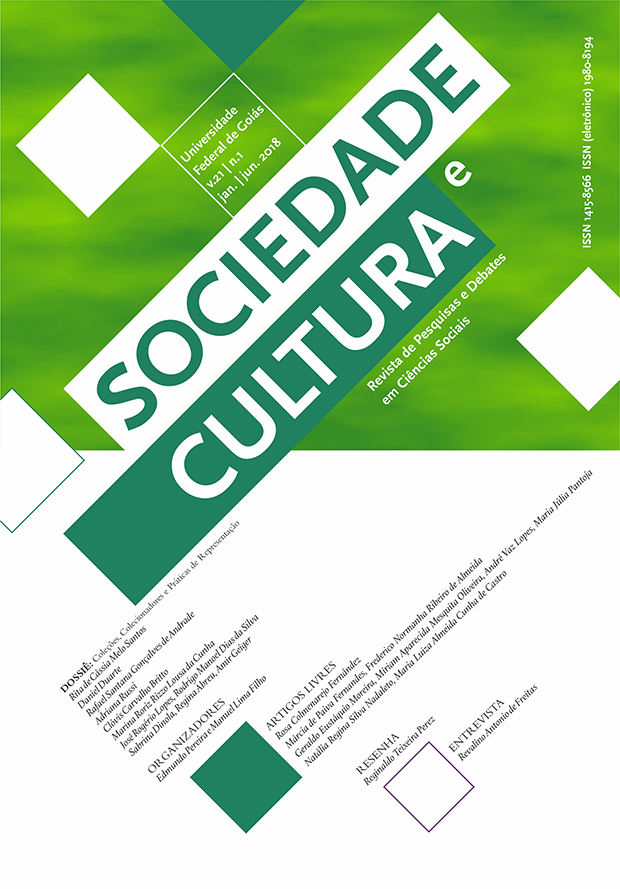Revisitando uma “coleção de cabeças”: notas sobre a musealização de restos mortais do cangaço
DOI:
https://doi.org/10.5216/sec.v21i1.54912Abstract
O trabalho investiga a musealização de despojos mortais do
cangaço a partir da trajetória das cabeças de Maria Bonita e
Lampião. Analisa a coleção de cabeças sob o ponto de vista do
“consumo do trágico”, sublinhando como contribuíram para
a efetivação de um antimuseu e para os debates sobre questões
éticas em torno da necrofilia nos museus. Visualiza como a
musealização das cabeças dos cangaceiros contribui para a
reconstrução das interfaces entre Antropologia, Museologia
e museus, evidenciando as transformações nesses artefatos: os
despojos humanos como provas de crime; troféus de guerra;
objetos científicos; e coleções museológicas. As análises
destacam estratégias de arquivamento, fabricação e consagração
de legados nas tramas de uma economia de símbolos sobre o
cangaço e os usos sobre os despojos humanos (tidos como
objetos sensíveis) nos museus.
Downloads
Downloads
Published
How to Cite
Issue
Section
License
Authors who publish in this journal agree to the following terms:
- Authors retain the copyright and grant the journal the right of first publication, the work being simultaneously licensed under the Creative Commons Attribution License, which allows the sharing of the work with acknowledgment of authorship and of the initial publication in this journal;
- Authors are authorized to enter into additional contracts separately, for non-exclusive distribution of the version of the work published in this journal (eg, publishing in an institutional repository or as a book chapter), with acknowledgment of authorship and of the initial publication in this journal;
- Authors are allowed and encouraged to post and distribute their work online (eg, in institutional repositories or on their personal page) at any point before or during the editorial process, as this can bring productive change as well as increases the impact and the citation of the published work (see O Efeito do Acesso Livre).



